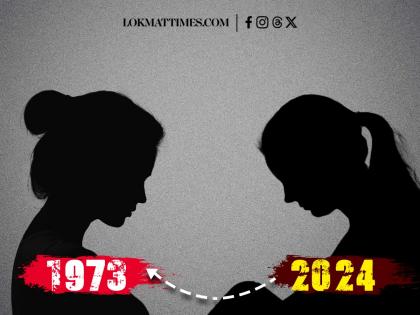Kolkata Rape- Murder Case Echoes the Haunting Assault on Mumbai’s KEM Hospital Nurse
By Lokmat English Desk | Updated: August 22, 2024 20:02 IST2024-08-22T19:56:47+5:302024-08-22T20:02:17+5:30
May it be the Kolkata rape and murder case or the UP-nurse's rape and murder case, the country is ...

Kolkata Rape- Murder Case Echoes the Haunting Assault on Mumbai’s KEM Hospital Nurse
May it be the Kolkata rape and murder case or the UP-nurse's rape and murder case, the country is currently engulfed in protests demanding justice for these victims. These incidents have shone a light on the pervasive issue of violence against women, bringing to mind one of the most tragic cases in Indian history: that of A nurse who worked in the surgery department at KEM Hospital in Mumbai. This case is one of the most horrific attacks on medical professionals within hospitals, and it became a significant test case for euthanasia or mercy killing.
In 1967, a 25-year-old Nurse joined KEM Hospital and was engaged to doctor, who worked there as well. They planned to marry in 1974. However, on November 27, 1973, a ward attendant brutally assaulted her, strangling her with a dog chain. This horrific assault left victim in a persistent vegetative state (PVS) until her death in 2015.
Also Read: Kolkata Doctor Rape-Murder Case: FAIMA Calls Off Strike After Positive Directions From Supreme Court
The brutality of the attack damaged her brain stem, leaving her paralyzed and unable to speak, reliant on others for her most basic needs. For over four decades, she was sustained through force-feeding by generations of dedicated staff at KEM Hospital, who cared for her like family. Victim became the focal point of a national debate when journalist Pinki Virani filed a petition with the Supreme Court in 2011, seeking permission for euthanasia.
Virani also wrote a book on her in which she claimed that the ward attendant committed the crime after victim caught him stealing food meant for dogs used in medical experiments at the hospital. Victim had threatened to report him to the hospital authorities.
Ms. Virani's petition aimed to allow victim to die with dignity, highlighting the ongoing debate about euthanasia in India. On March 7, 2011, the Supreme Court denied the request for active euthanasia, determining that victim was not brain dead. However, it did permit "passive euthanasia," allowing for the withdrawal of life support in cases of vegetative states with family consent and court approval.
victim passed away on May 18, 2015, after developing pneumonia. Meanwhile, her attacker, was convicted of robbery and attempted murder, receiving a seven-year sentence, as "sodomy" was not classified as rape under Indian law at that time.
Years have passed since this brutal assault, but little has changed. During the Kolkata rape case hearing, Chief Justice of India DY Chandrachud cited the 1973 victim incident to emphasize the ongoing violence against women doctors, attributing this issue to deep-rooted patriarchal biases. He argued that as the number of women in the workforce increases, immediate changes must be implemented to address these problems rather than waiting for another tragedy to occur. This case, known for its severity and its implications for euthanasia, serves as a stark reminder of the threats faced by medical professionals in hospitals.
Open in app